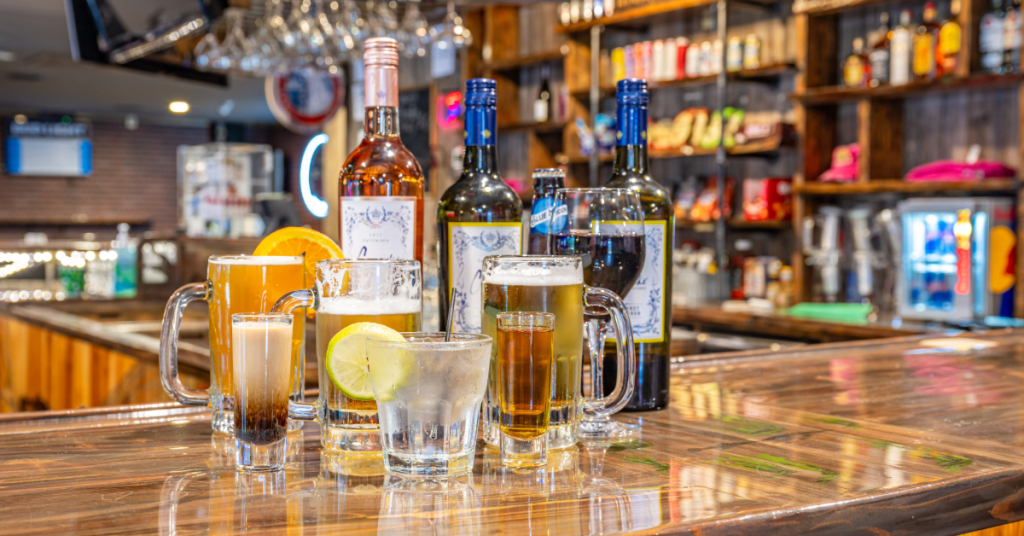
Serving alcohol can be a profitable part of running a restaurant, but it also comes with significant risks. Whether you operate a bar, casual dining spot, or fine dining establishment, liquor liability insurance is essential to protect your business from lawsuits, fines, and financial losses. In this blog, we’ll break down why liquor liability coverage matters and how it can safeguard your restaurant.
1. What Is Liquor Liability Insurance?
Liquor liability insurance provides coverage for businesses that serve alcohol, protecting them from claims related to:
- Alcohol-related injuries – If an intoxicated patron causes harm to themselves or others after drinking at your establishment.
- Property damage – If a drunk customer damages another person’s property.
- Legal expenses – Covers the cost of defending your business against liquor-related lawsuits.
If your restaurant sells or serves alcohol, you could be held legally responsible for any alcohol-related incidents, even if they occur off your premises.
2. Why Your Restaurant Needs Liquor Liability Insurance
Many restaurant owners assume that general liability insurance covers all potential risks—but it often excludes alcohol-related incidents. Without liquor liability insurance, your restaurant could face:
- Lawsuits from injured parties
- Fines for non-compliance with liquor laws
- License suspension or revocation
Additionally, some states require liquor liability insurance for restaurants with a liquor license, making it a mandatory investment rather than an optional one.
3. Common Liquor Liability Risks for Restaurants
Understanding the potential risks can help you take proactive steps to protect your restaurant:
- Over-serving customers – If a guest is visibly intoxicated and continues to be served, your business could be held accountable.
- Underage drinking – If an employee mistakenly serves alcohol to a minor, your restaurant could face hefty fines and legal consequences.
- Fights & altercations – Alcohol consumption increases the likelihood of fights and disturbances, which can lead to liability claims.
- DUI incidents – If a customer leaves your restaurant intoxicated and causes an accident, your establishment may be legally implicated.
4. How to Minimize Liquor Liability Risks
While having the right insurance coverage is crucial, implementing best practices can help reduce liability risks:
- Proper staff training – Train employees to recognize signs of intoxication and refuse service when necessary.
- Check IDs carefully – Implement strict ID verification policies to prevent underage drinking.
- Encourage safe transportation – Provide options like designated driver programs or partnerships with ride-sharing services.
- Maintain detailed records – Keep incident logs and security footage to document any issues that arise.
5. How to Choose the Right Liquor Liability Policy
When selecting a policy, consider:
- Coverage limits – Ensure your policy covers potential lawsuit costs and damages.
- State requirements – Some states have minimum liquor liability coverage requirements.
- Inclusions & exclusions – Review the fine print to understand what’s covered and what’s not.
- Bundling options – Some insurers offer package deals that combine general liability and liquor liability insurance for better pricing.
Final Thoughts: Don’t Leave Your Business Exposed
If your restaurant serves alcohol, having liquor liability insurance is a must. Without it, a single lawsuit could lead to devastating financial losses or even force you to close your doors. Protect your business, employees, and customers by ensuring you have the right coverage in place.
At McElroy Insurance Services, we help restaurant owners find the best liquor liability policies tailored to their needs. Contact us today for a free consultation and ensure your business is fully protected.
📞 Call us at 1-800-840-1185
📧 Email: quotes@mcelroyinsuranceservices.com
🌐 Visit: www.mcelroyinsuranceservices.com
